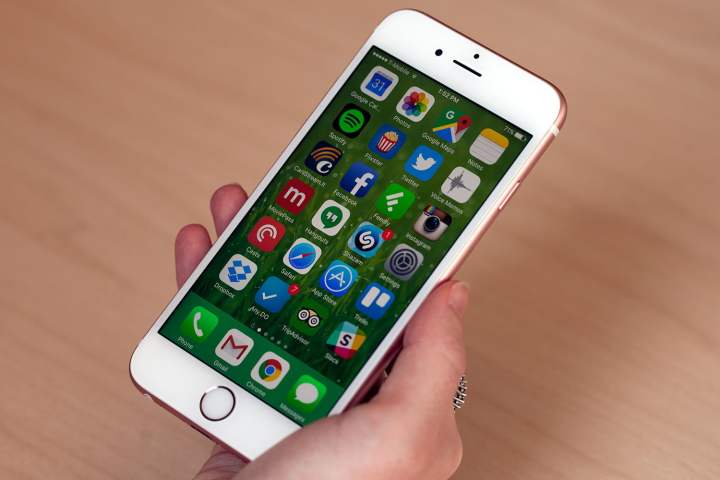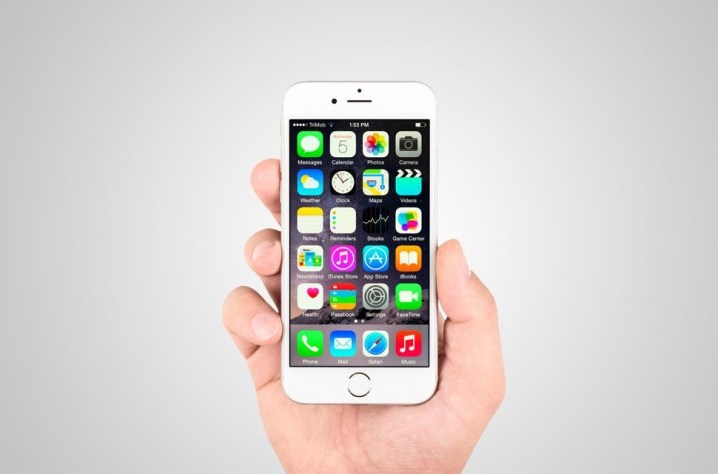If you’re puzzling over which iPhone you should buy, but you lack the funds for a new model, then you may be tempted to pick up an older iPhone. Apple continues to support iPhones for several years after release, and they tend to perform well for a long time. The oldest iPhone that Apple now sells is the iPhone XR, making both the iPhone 6 and iPhone 6S a bit long in the tooth. If you’re choosing between the two devices, though, we’re happy to help you decide.
The successor to Apple’s iPhone 6 was the iPhone 6S. It looks identical to its predecessor, so you may be wondering what the difference is. Below, we spell out the hardware specifications of both iPhones and dip into an analysis of the categories where you’re likely to see the biggest differences.
|
Apple iPhone 6S |
Apple iPhone 6 |
|
| Size | 138.3 x 67.1 x 7.1 mm (5.44 x 2.64 x 0.28 inches) | 138.1 x 67 x 6.9 mm (5.44 x 2.64 x 0.27 inches) |
| Weight | 143 grams (5.04 ounces) | 129 grams (4.55 ounces) |
| Screen size | 4.7 inches | 4.7 inches |
| Screen resolution | 1334 x 750 pixels (326 pixels per inch) | 1334 x 750 pixels (326 pixels per inch) |
| Operating system | iOS 13 | iOS 12 |
| Storage space | 16GB, 64GB, 128GB | 16GB, 64GB, 128GB |
| MicroSD card slot | No | No |
| Tap-to-pay services | Apple Pay | Apple Pay |
| Processor | A9 chip with 64-bit architecture, M9 motion coprocessor | A8 chip with 64-bit architecture, M8 motion coprocessor |
| RAM | 2GB | 1GB |
| Camera | 12MP rear, 5MP front | 8MP rear, 1.2MP front |
| Video | 2160p at 30fps, 1080p up to 120fps, 720p at 240fps | 1080p at 60fps, 720p at 240fps |
| Bluetooth version | 4.2 | 4.0 |
| Ports | Lightning port, 3.5mm audio jack | Lightning port, 3.5mm audio jack |
| Fingerprint sensor | Touch ID | Touch ID |
| Battery | 1,715mAh | 1,810mAh |
| App marketplace | Apple App Store | Apple App Store |
| Network support | T-Mobile, AT&T, Verizon, Sprint | T-Mobile, AT&T, Verizon, Sprint |
| Colors | Space Gray, Silver, Gold, Rose Gold | Space Gray, Silver, Gold |
| Price | $150 and up | $110 and up |
| Review score | 4.5 out of 5 stars | 4.5 out of 5 stars |
Performance, battery life, and charging

Every new iPhone is faster than those that came before, and the iPhone 6S is no exception. Apple jumped from the A8 chipset that was in the iPhone 6 to its A9 chipset. Similarly, the 6S upgraded from the M8 coprocessor to the M9. These upgrades translate to faster processing speeds — about 70 percent faster, according to Apple. The iPhone 6S also boasts 2GB of RAM, which is double the RAM in the iPhone 6. That means that the iPhone 6S is noticeably faster than the iPhone 6 in most tasks and a much more capable multitasker. In terms of storage, both come in 16GB, 64GB, or 128GB versions.
The iPhone 6S actually has a smaller battery than the iPhone 6, but the more efficient processor balances things out and it tends to last a bit longer on an average day. Both charge via the Lightning port and take a similar length of time to juice up.
Winner: Apple iPhone 6S
Design and durability

In terms of look and size, there isn’t much of a difference between the two, in fact, you’ll struggle to tell them apart. The iPhone 6S is 0.01 inches thicker and half an ounce heavier, but those are hardly noticeable differences. Both phones are 5.44 inches tall by 2.64 inches wide, and both feature a 4.7-inch display. Both have the headphone jacks, a Lightning port for charging, and that iconic Touch ID home button that was a feature of iPhones for many years.
Both phones are aluminum, so they’re pretty tough, but the iPhone 6S is built from superior Series 7000 aluminum, which should be a little stronger. This change may have been a response to the bendgate furor around the iPhone 6 Plus.
Winner: Tie
Display
Both of these iPhones have a 4.7-inch display with a 1334 x 750-pixel resolution, which works out to 326 pixels per inch. There’s no dividing them here. Only the 6S has Apple’s 3D Touch technology, but we’ll deal with that in the special features section below. Visually speaking, there’s no difference between these displays.
Winner: Tie
Camera
The iPhone 6S blows the iPhone 6 out of the water in the camera department with a seriously beefed-up main camera and a much-improved selfie camera. The main camera is rated at 12 megapixels, up from 8 megapixels, and the front-facing camera has jumped to 5 megapixels from a woefully inadequate 1.2 megapixels. The 6S is also capable of shooting 4K resolution video, while the iPhone 6 is limited to 1080p. You can expect to capture much better photos with the iPhone 6S.
Winner: Apple iPhone 6S
Software and updates
Initially, the iPhone 6 launched with iOS 8, and the iPhone 6S launched with iOS 9. Since then, the iPhone 6 has maxed out with iOS 12, but the iPhone 6S has been upgraded to iOS 13. Apple is releasing iOS 14 later this year, which will support iPhone 6S — and which will leave the iPhone 6 yet another operating system behind.
Winner: iPhone 6S
Special features

Immediately apparent is the inclusion of the 3D touch feature on the iPhone 6S. Essentially, 3D Touch is enabled by a pressure-sensitive screen that can pick up on how hard you press the display. You can lightly press to peek into things, for example lightly pressing on a photo in your gallery will give you a pop-up preview. You can press harder to pop straight into the content.
The iPhone 6S also supports a slightly newer and better Bluetooth version and it comes in Rose Gold, which is not an option with the iPhone 6.
Winner: Apple iPhone 6S
Price and availability
If you want to buy an iPhone 6S or an iPhone 6 today, then you’ll likely be buying a refurbished handset or a used phone. Prices vary widely, but you can pick up an iPhone 6 starting from around $110 and an iPhone 6S will cost $40 or so more.
Overall winner: Apple iPhone 6S
There’s no doubt that the iPhone 6S is a better phone. There isn’t a huge gap between them; the main differences are the improved performance and the better cameras in the iPhone 6S, but they are important updates. Since both can be had pretty cheaply now, and the iPhone 6S is liable to last you a bit longer, we would definitely recommend it over the iPhone 6.


